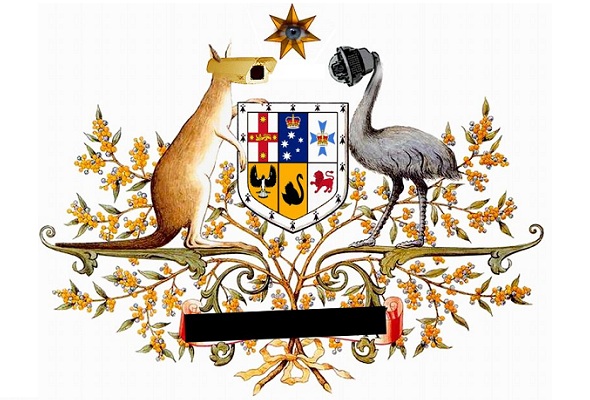Decision on national security nears
The implications of the National Security Inquiry from a governmental, public, academic, and journalistic perspective.
Hearings have been heard, submissions have been read, and the National Security Inquiry ticks closer to a decision.
The Inquiry into potential reforms of National Security Legislation, or National Security Inquiry (NSI), is an inquiry by the Joint Parliamentary Committee on Intelligence and Security that is examining proposed new national security and privacy legislation put forth by the Attorney-General and the Australian Security Intelligence Organisation (ASIO).
The Committee received 209 submissions discussing the matter, most of which were in opposition of the proposed legislation.
Concerns have been raised by the public and many organisations that the proposed legislation would be an invasion of privacy and that they are too extreme.
But what are the implications?
Governmental
The Australian Government would advantage from the legislation being passed as they would be able to monitor online crime and more effectively stop it.
ASIO are pushing for the legislation as in opens up many avenues for stopping crime.
“TI (Telecommunication Interception) is a critical operational tool for security, law enforcement and integrity agencies. It cannot easily, or without considerable cost or risk, be substituted with any combination of alternative investigative techniques.” said ASIO’s submission to the Joint Parliamentary Committee on Intelligence and Security.
The biggest question in the inquiry is about the data retention in which internet providers would hold personal data for up to two years.
ASIO believes the retention of communication associated data (CAD) is important to national security.
“From the point of view of security and law enforcement agencies retention of CAD information has important investigative advantages.”
The Queensland Privacy Commissioner, Lemm Ex, did not make a submission to the inquiry but said “At the initial time of the inquiry we considered putting in a submission to the effect that the business case for the proposal was not strongly developed.” And added, “this was not an uncommon comment.”
Public
Most of the submissions against the national security legislation reforms shared two common points—accountability and invasion of privacy.
Internet service providers would hold public information for up to two years including bank passwords, emails, and financial information.
The Gilbert and Tobin Centre of Public Law at the University of New South Wales submitted against the legislation.
Spokeswoman Dr Jessie Blackbourn wrote, “Any intrusions into the right to privacy should be the minimum required to achieve the public purpose.”
With many websites around Australia already the victims of hackers, the safety of the data being stored is also in question.
Big W employee, Rebecca Bellamy, has worked for years to save over $10,000 is worried about the safety of her savings.
“I’m not comfortable knowing that the passwords to access my savings account are being stored in a database somewhere by companies who aren’t even experienced in data protection.”
Academic
Dr Sean Rintel, a lecturer in strategic communication at the University of Queensland, co wrote a submission to the inquiry for Electronic Frontiers Australia and is also an expert of online privacy.
Dr Rintel is worried about the safety of the data that is going to be held by internet service providers.
“The government doesn’t have a good track record in this” said Dr Rintel, “the government are creating what we call honeypots, that is, things that attract hackers and other sorts of people to come and try to get at that data.”
The amount of important financial and personal information that could be kept if the proposal become law is huge and Dr Rintel believes that is this information is to be kept safe it needs to protected with an extremely high level of security.
Neither the government nor ASIO has released how they would plan to keep this information safe.
ASIO also plan to have access to any digital device that is owned by the general public so they can plant bugs that will track keystrokes and capture passwords so they can monitor the movements of suspects.
Rintel explains that anyone can become under suspicion if they have only visited the same website as suspect and that is all that is needed as a warrant.
This lack of accountability allows ASIO to do many things, “they’re asking for the ability to come on to our computers be they home computers, tablets, laptops, mobile phones and be able to delete, alter, or add files.” Said Dr Rintel.
Journalistic
When only months ago many journalists were disgraced for phone tapping and hacking the proposed legislation would see ASIO able to intercept telecommunications.
The Media, Entertainment and Arts Alliance, tasked with protecting Journalists and their integrity, spoke out against the proposed national security legislation.
“Legislation has, since 2001, been introduced that threatens journalists’ ability to do their jobs, undermine sources trust that journalists will keep the source’s identity confidential, and allows various government agencies to go on fishing expeditions to discover what journalists know and what information they have.”
“Phone intercept laws deter confidential sources and may lead to a culture of self censorship. Without public faith in a journalist’s promise to protect sources, much crucial information in the public interest would not come to light.” Wrote the Alliance. “Any attempt to destroy this trust will result in fewer people speaking out and the public left with nothing but government spin, media stunts and government agencies free from scrutiny.”
Former Courier-Mail journalist and freelance writer, John Wright, said “this raises a huge civil liberties issue.”
The expansion of warrant powers under the Telecommunications (Interception and Access) Act 1979 would see ASIO able to tap into phones of possible suspects.
This has potential to ruin journalist’s credibility as their promises of confidentiality could mean nothing is ASIO is listening in.
Image credit: Photo created by Senator Scott Ludlum and used with the permission of his office.

